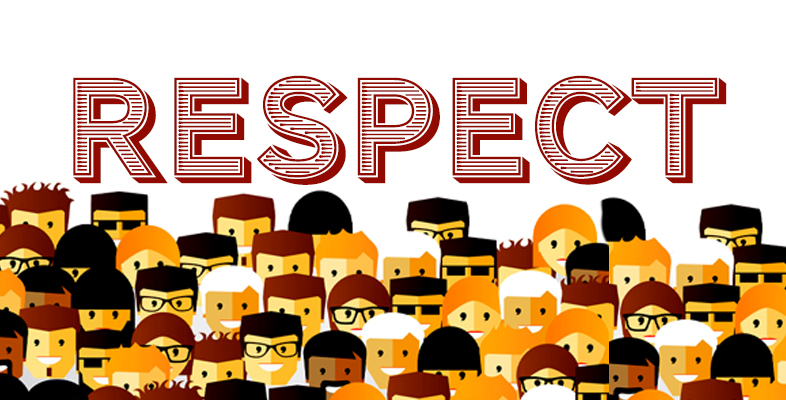2 Meeting expectations of others
In Activity 1, you started to consider how researchers might feel pressure from different stakeholders in their research; for example, from sponsors and/or participants, and how this might influence their behaviour as researchers. When there is a tension between these pressures that is difficult to resolve, or the pressure from one stakeholder becomes difficult to deal with, a researcher can be tempted away from their virtuous intentions. Thus, researchers need to consider what these expectations might be when planning their research.
One of the best ways to identify pressures and challenges in order to plan ways to resolve them is to first get to know all those involved in and affected by the research. Then, try to develop an appreciation for their points of view and agendas and how the research might connect with these. In this way, the researcher will start to build positive, open, trusting relationships.
In Activity 2, you will reflect on some of the researchers you have heard from already on this course – Jonty, Kate, Alison and Liz and Teresa – in terms of what others expected from them and how it might have affected their behaviours when ending their research.
Activity 2 Meeting multiple expectations
Read the following summaries of those whom these five researchers aimed to benefit:
Teresa’s research (Session 1) with teachers developing as writers aimed to benefit the teachers involved with the programme, inform the provider who offered the programme and, by raising the attention given to teachers’ developing their own skills in writing, benefit their pupils in future. By being part of a large-scale study, evidence was being offered that could inform the profession more widely.
Kate’s research (Session 1) with youth workers supporting families when using outdoor education centres aimed to benefit the youth workers, as well as the policy and practice in the outdoor education centres and those who deployed the youth workers, including the educational trust funding her research. Ultimately, her research intended to benefit future families using these services.
Jonty’s research (Session 4) about portage home visitors supporting families was aimed to support those who engaged with the research, the home visitors and the Portage Association more broadly. Ultimately, his research intended to benefit future families using these services.
Alison and Liz’s research (Session 4) with out-of-school girls in Zimbabwe aspired to help empower these girls, inform their families and those providing educational opportunities about the barriers to the girls engaging with education. They also intended their research to decrease the numbers of girls dropping out of education in the region.
You will notice they all wanted to benefit:
- those involved at the time of the research
- practitioners providing the services and interventions on which the research focused
- policy (whether at local or regional level)
- future children, young people, families.
Their studies were all published and have also contributed to the body of academic knowledge related to their particular field, guiding future researchers.
Think about:
- Can you identify any tensions between trying to meet all of these expectations in any one project?
- How might having so many beneficiaries lead to a range of plans for dissemination?
- What might a researcher need to do to increase their chances of their study having an impact beyond the timeframe of their particular study?
Read Case study 6.1, which is an example of how different accountabilities led to real tensions for a researcher in ways which they felt they couldn’t control. Although this is in an educational context, the issues raised about whether it is possible to retain responsibilities for the impact of research could relate to any setting.
Case study 6.1 A case of split loyalities
This case study is adapted from the fictionalised BERA Research Ethics Case Study #3 Anticipating the unintended consequences of practitioner research:
Paul chooses to explore the nature and impact of in-class teaching assistant (TA) support. His aim is to understand how TAs are being deployed in his own school, and how effective that deployment is in terms of supporting students’ progress in English and Maths, and fostering wider student engagement and wellbeing. Paul receives ethical approval, through both his MAT and the university where he is enrolled, for a mixed-methods study.
Paul’s dissertation reports on the full mixed-methods study. His quantitative data analysis shows that, as it is currently being deployed, in-class TA support is having a minimal impact on students’ progress in English and mathematics. He draws on anonymised observational data and interviews to describe the role of TAs and the training and support they receive, and to evidence the wider impacts they have, including building positive relationships with students and improving student attendance and wellbeing. He highlights the limitations of his analysis.
A vice-principal at the school reads Paul’s dissertation and asks him to produce some PowerPoint slides summarising his findings. The vice principal wants to present these at a meeting of the MAT’s governing board and senior leadership team, to inform discussions about how to modify the use of TAs across the Trust…Paul spends considerable time in the evenings and at the weekend crafting a set of slides that he is satisfied present an accessible, accurate, thorough and contextualised account of his research findings. He describes a number of positive steps that, on the basis of his findings, the MAT could make to support TAs to have more of an impact, including further training.
A couple of weeks after the meeting, senior staff announce that the number of TAs will be halved across the MAT in the forthcoming academic year. The vice principal tells Paul that this development had been likely for some time, and was not a direct result of his study. However, Paul doubts that this is entirely true, and feels very guilty. He is aware of the power and status imbalances in play in his research, and feels that the TAs were relying on him to advocate for the importance of the work they do. However, other aspects of his research were taken on board by the MAT: Paul is pleased to hear that the remaining TAs will be receiving training.
The full case study, which includes an analysis with reference to different paragraphs of the BERA ethical guidance, can be downloaded from the BERA website [Tip: hold Ctrl and click a link to open it in a new tab. (Hide tip)] (make sure to open the link in a new tab/window).
Activity 3 Dealing with tensions between expectations
In response to Case study 6.1, choose one of the following questions to respond to on the course forum and contribute a short post with your views.
- What more could Paul have done to consider and accommodate the wellbeing and desires of the various stakeholders in his study?
- Could Paul have done more to prevent the MAT from cutting the number of TAs? Is this a legitimate objective or concern for him in his capacity as a researcher?
- What considerations might have affected the way the MAT behaved, thinking about its responsibilities to Paul, its TAs and/or its students?
- What more could the university where Paul was enrolled for his master’s programme have done to support Paul as a new researcher?
The issues Paul experienced in terms of tensions between his allegiances and his lack of control over the onward use of his reported data are ones which are not particular to his setting. Researchers can be proactive in a) keeping abreast of agendas of possible audiences, b) keeping possible audiences updated and informed and c) being explicit about the tentativeness needed in reading the results, but they cannot expect to retain control of the onward use. You may be aware of responses of authors to what they see as misinterpretations of their research on social media or in official responses in academic journals. This is a route open to authors.

